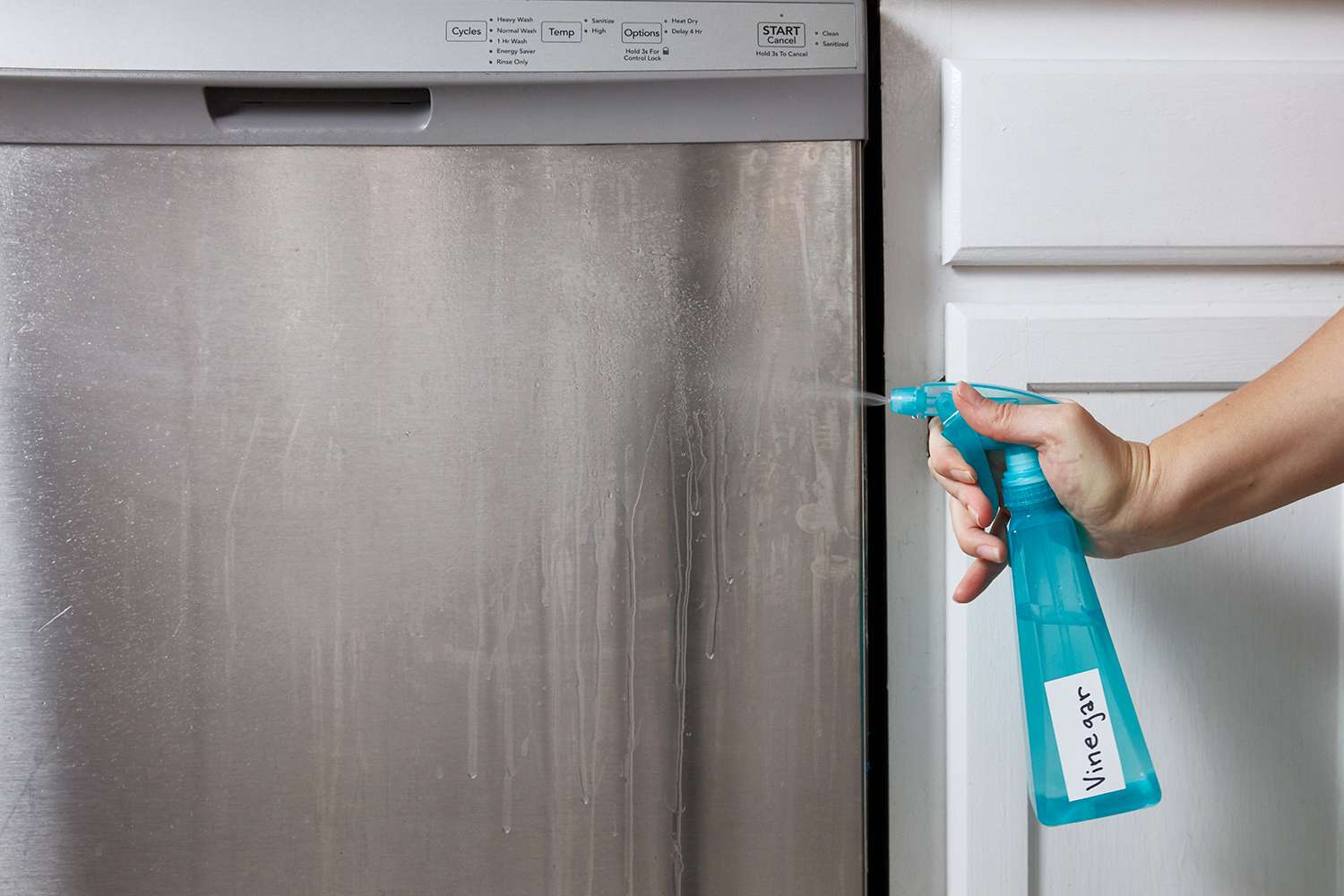Stainless steel is a popular material used in a variety of household items because of its durability and resistance to corrosion and rust. But one of the questions that many people have is whether vinegar can break down stainless steel. Vinegar is a popular household cleaner and is often used in the kitchen for cleaning, but it can also be used to remove rust and other deposits from stainless steel surfaces. In this article, we will look at whether vinegar can break down stainless steel and what the best methods are to use it for cleaning.
What Is Stainless Steel?
Stainless steel is an alloy of steel, chromium, and sometimes other metals, such as nickel and molybdenum. This combination of metals creates a strong, corrosion-resistant material that is widely used in a variety of industries and applications. Stainless steel is a popular choice for kitchen appliances, medical equipment, automotive parts, and jewelry due to its durability, style, and affordability. It is also used in construction and architectural design, making it one of the most versatile and useful alloys available. Stainless steel is low maintenance, easy to clean, and stands up to wear and tear, making it a great choice for everyday use.
What Is Vinegar and Its Uses?
Vinegar is a versatile product made from a variety of sources, including wine, cider, grains, and fruits. It has been used as an ingredient in cooking and cleaning for centuries, and it has many practical applications. Vinegar is made by fermenting a carbohydrate-rich liquid, such as wine or grain alcohol, in an oxygen-free environment. This process results in the production of acetic acid, which gives vinegar its sour taste and odor. Vinegar is often used in cooking as a flavor enhancer, marinade, and pickling agent. It can also be used to clean surfaces, remove stains, and deodorize fabrics. It has even been used as a natural remedy for health ailments, such as sore throats, congestion, and sinus infections. Vinegar’s acidic properties make it an effective disinfectant, deodorizer, and cleaner, making it an invaluable tool in the home.
The Impact of Vinegar on Stainless Steel
Vinegar is a versatile product that can be used in many aspects of our daily lives. But when it comes to stainless steel, it can have a detrimental effect. The acidic nature of vinegar can damage the protective layer of chromium oxide that helps keep stainless steel from rusting. The result can be staining, pitting, and etching of the metal. So it is important to be mindful of the types of cleaners and products used when cleaning stainless steel surfaces. Vinegar can be used on stainless steel in moderation, but it should be thoroughly rinsed off with clean water after use to avoid any potential damage.
Corrosion of Stainless Steel
Stainless steel is a strong and durable metal that is often used in areas with high corrosion risks, such as in kitchens, bathrooms, and other places where exposure to water is likely. However, stainless steel is not impervious to corrosion, and if not properly cared for, it can suffer rust damage. Corrosion of stainless steel is caused by exposure to oxygen or moisture, which can react with the surface of the metal and cause discoloration and deterioration. To prevent corrosion, stainless steel must be properly maintained and regularly cleaned with a non-abrasive cleaner; this will help to reduce the risk of corrosion and keep stainless steel looking its best.

The Effects of Vinegar on Different Types of Stainless Steel
Stainless steel is an incredibly durable and versatile material commonly used in kitchenware, appliances, and other storage solutions. However, many people are unaware of how different types of stainless steel can react to acidic substances, such as vinegar. This article will explore the effects of vinegar on different types of stainless steel, including the effects on corrosion, discoloration, and surface damage. By understanding the effects of vinegar, you can better protect your stainless steel surfaces and make sure your investments last for years to come.
How to Clean and Maintain Stainless Steel with Vinegar
Stainless steel is a popular material for many surfaces, from kitchen appliances to outdoor furniture. It’s easy to keep stainless steel looking shiny and new with a few simple steps. One of the best ways to clean and maintain stainless steel is with vinegar. Vinegar is a natural, non-toxic cleaner that is effective at removing dirt, grease, and grime from stainless steel surfaces. It is also an effective disinfectant, so it can kill germs and bacteria on the surface. To clean your stainless steel with vinegar, start by wiping it down with a damp cloth to remove any dirt or debris. Then, spray the area with a mixture of equal parts white vinegar and water. Let the vinegar sit on the surface for a few minutes before scrubbing it with a soft cloth. Finally, rinse the area with clean water and let it air dry. With these simple steps, you can keep your stainless steel looking like new.
Alternatives to Using Vinegar to Clean Stainless Steel
When it comes to cleaning stainless steel, many people automatically reach for vinegar. But did you know there are other alternatives you can use to get your stainless steel looking like new? From natural ingredients like lemon and baking soda to store-bought products, there are a variety of ways you can clean stainless steel without having to use vinegar. Whether you’re looking for a more natural approach or something more powerful, there’s sure to be an option that works for you. With these alternatives, you can keep your stainless steel shiny and streak-free with a fraction of the effort.
FAQs About the Does Vinegar Break Down Stainless Steel?
1. Does white vinegar break down stainless steel?
Yes, white vinegar can break down stainless steel over time, so it is important to not use it for cleaning or in any other way that could cause damage to the surface of the stainless steel.
2. Can vinegar be used to clean stainless steel?
Yes, vinegar can be used to clean stainless steel, however, it is important to remember to not use it too often as it can cause damage to the surface of the stainless steel.
3. Is vinegar safe to use on stainless steel?
Yes, vinegar is generally considered safe to use on stainless steel, however, it can cause damage over time if used too often, so it is important to not use it too often.
Conclusion
Vinegar can be used to clean stainless steel, but it should be used with caution as it can cause damage if it is left on the steel for too long. Vinegar is an acidic substance, and if it is left on the steel for an extended period of time, it can cause it to corrode and break down. Therefore, it is important to use vinegar sparingly and to remove it as soon as possible to prevent damage to the stainless steel.


